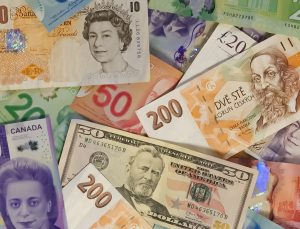Forex or foreign exchange trading is the largest financial market in the world, with a daily volume of over $5 trillion. It involves the buying and selling of currencies from different countries, and its popularity has grown significantly over the years, thanks to the internet and the ease of access to online trading platforms.
Given its size and complexity, forex trading needs to be regulated to ensure that it operates in a fair and transparent manner, and to protect investors from fraud and other malpractices. Forex regulation is the responsibility of various government bodies, regulatory agencies, and industry organizations around the world.
In this article, we will delve into the different entities that regulate forex trading and their roles in ensuring that the market operates smoothly.
1. Central Banks
Central banks are the most powerful regulators in the forex market. They are responsible for setting monetary policy, which includes interest rates, money supply, and exchange rate policies. Central banks use a variety of tools to influence the value of their respective currencies, such as buying or selling currencies in the open market, adjusting interest rates, and intervening in the forex market.
The U.S. Federal Reserve, European Central Bank (ECB), Bank of Japan (BOJ), and Bank of England (BOE) are some of the world’s most influential central banks. Their policies and actions can greatly impact the forex market, and traders often closely monitor their statements and decisions for potential trading opportunities.
2. Financial Regulators
Financial regulators are government agencies responsible for overseeing financial markets, including forex trading. They are tasked with enforcing laws and regulations to protect investors and ensure that financial institutions operate in a safe and sound manner.
In the United States, the primary financial regulator is the Commodity Futures Trading Commission (CFTC), which oversees forex trading through the National Futures Association (NFA). The NFA is a self-regulatory organization that enforces compliance with CFTC regulations and sets ethical standards for forex brokers.
In Europe, the main regulatory body is the European Securities and Markets Authority (ESMA), which regulates forex trading through individual national regulators such as the Financial Conduct Authority (FCA) in the UK and the Autorité des marchés financiers (AMF) in France.
Other notable financial regulators around the world include the Australian Securities and Investments Commission (ASIC), the Financial Markets Authority (FMA) in New Zealand, and the Monetary Authority of Singapore (MAS).
3. Industry Organizations
Industry organizations are non-governmental bodies that represent the interests of forex brokers, traders, and other market participants. They set ethical standards and best practices for the industry and provide education and training for traders.
One of the most prominent industry organizations is the International Association of Forex Traders (IAFT), which represents over 200,000 traders worldwide. The IAFT provides its members with access to educational resources, trading tools, and discounts on trading commissions.
Another notable industry organization is the Forexpeacearmy (FPA), which is an online community of traders that provides reviews and ratings of forex brokers. The FPA also offers a forum for traders to share their experiences and seek advice from other members.
Conclusion
Forex trading is a complex and dynamic market that requires regulation to ensure its integrity and protect investors. Central banks, financial regulators, and industry organizations all play important roles in regulating forex trading and ensuring that it operates in a fair and transparent manner.
As a forex trader, it is important to choose a reputable broker that is regulated by a respected financial regulator. This will help to ensure that your funds are safe and that you are trading on a platform that adheres to ethical standards and best practices.






